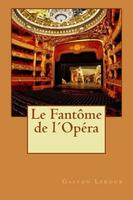Subject
The Persian is a major character from the 1910 Gaston Leroux novel The Phantom of the Opera. In the book, he is the one who tells most of the background of Erik's history. Erik refers to him as the "daroga" (داروغه, Persian for "police-chief") and his memoirs are featured in five chapters of the novel. He is also considered Erik's only friend. According to his account of himself in the novel, the Persian once served as the chief of police (daroga) in the court of the Shah of Persia during the years that Erik was there. The Shah ordered him to execute Erik after Erik provided his services in construction for the Shah. Being kindhearted, he helped Erik escape from Persia instead, a trick that involved presenting a body washed up on the shore as Erik's. When news of the escape spread, the Shah correctly suspected The Persian of being involved, and punished him by stripping him of his property and sending him into exile. However, as a distant member of the royal family, The Persian continued to be paid a small pension. The Persian later travels to Paris and takes up living in a small, middle-class flat in the rue de Rivoli, across the street from the Tuileries, and employs a servant named Darius. He becomes known as a fixture of the Opera, considered an eccentric Persian who is allowed to wander backstage where he pleases. Research into Leroux's sources has revealed that Leroux based this description upon a real-life Persian who frequented the Paris Opera in the 19th century. This person was the son of Hajji Khalil Khan, a Persian Ambassador to India who was accidentally shot dead in Bombay in 1802 by bodyguards provided to him by the East India Company. As part of their apology the British government was paying his son, the Persian, a generous pension that had enabled him to live out his life in Paris. He is described in the novel as having an "ebony skin, with eyes of jade", and he wears a short Astrakhan cap along with Western dress clothes of the narrative's historic setting. Leroux writes that he has "a noble and generous heart" and is an upright man concerned for the fate of others. The novel does not ever specify The Persian's name. Source: Wikipedia (en)
Works in which The Persian appears 1
Subject - wd:Q7756752
